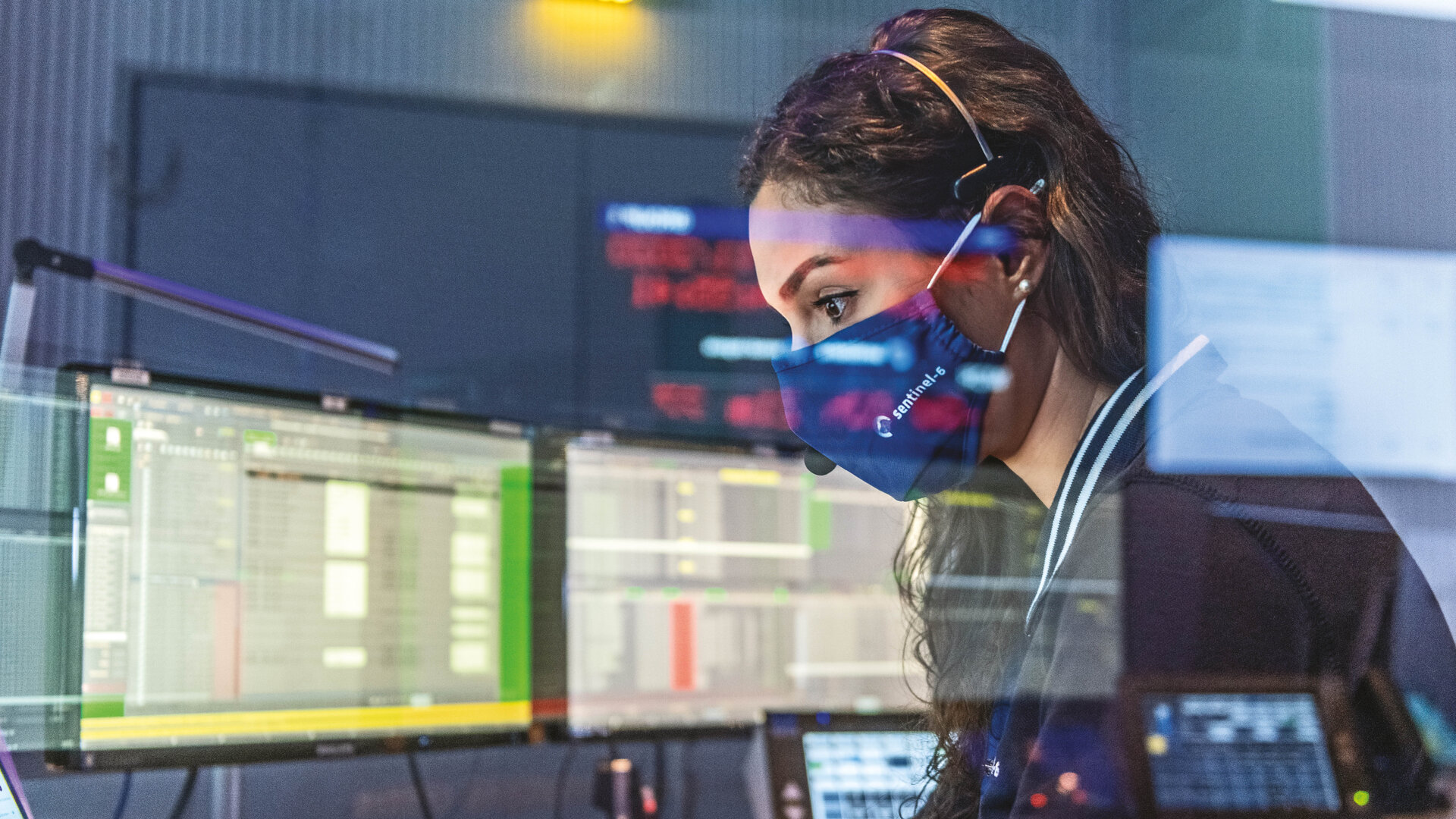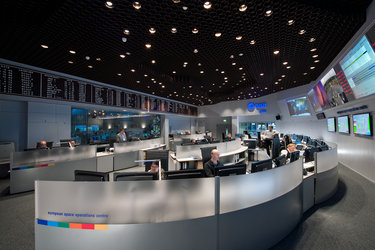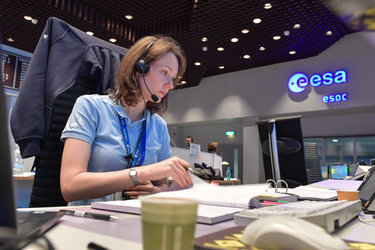

Operate
A flight engineer at ESA’s Operations Centre in Darmstadt, Germany, during the launch of Copernicus Sentinel-6
Since 1967, more than 85 European satellites have been successfully overseen from here. Other mission operation centres are studded across our continent, notably EUSPA’s Galileo Operations Centre in Oberpfaffenhofen, Germany, which oversees Europe’s single largest satellite constellation, the Galileo navigation system.
The traditional term ‘unmanned missions’ is misleading, because crews of specialists are responsible for all key events in the life of a satellite once it separates from its launcher, starting with the critical ‘launch and early operations’ phase, when a mission first comes to life. It begins with orienting the satellite to stably acquire solar power from the Sun, then its subsystems and payloads are gradually switched on, after which the newborn mission is nursed to full health.
Mission controllers monitor Europe’s spacecraft 365 days per year, planning and uploading telecommands, reviewing telemetry to check on mission health and ensuring a steady flow of precious data back to scientists and user communities. Full flight crews step in at key points in a mission’s life, such as orbital manoeuvres – occurring increasingly these days to avoid space debris. They are also ready to respond to any mission anomalies that arise, deducing their cause before working with technical experts and satellite builders to improvise solutions.





